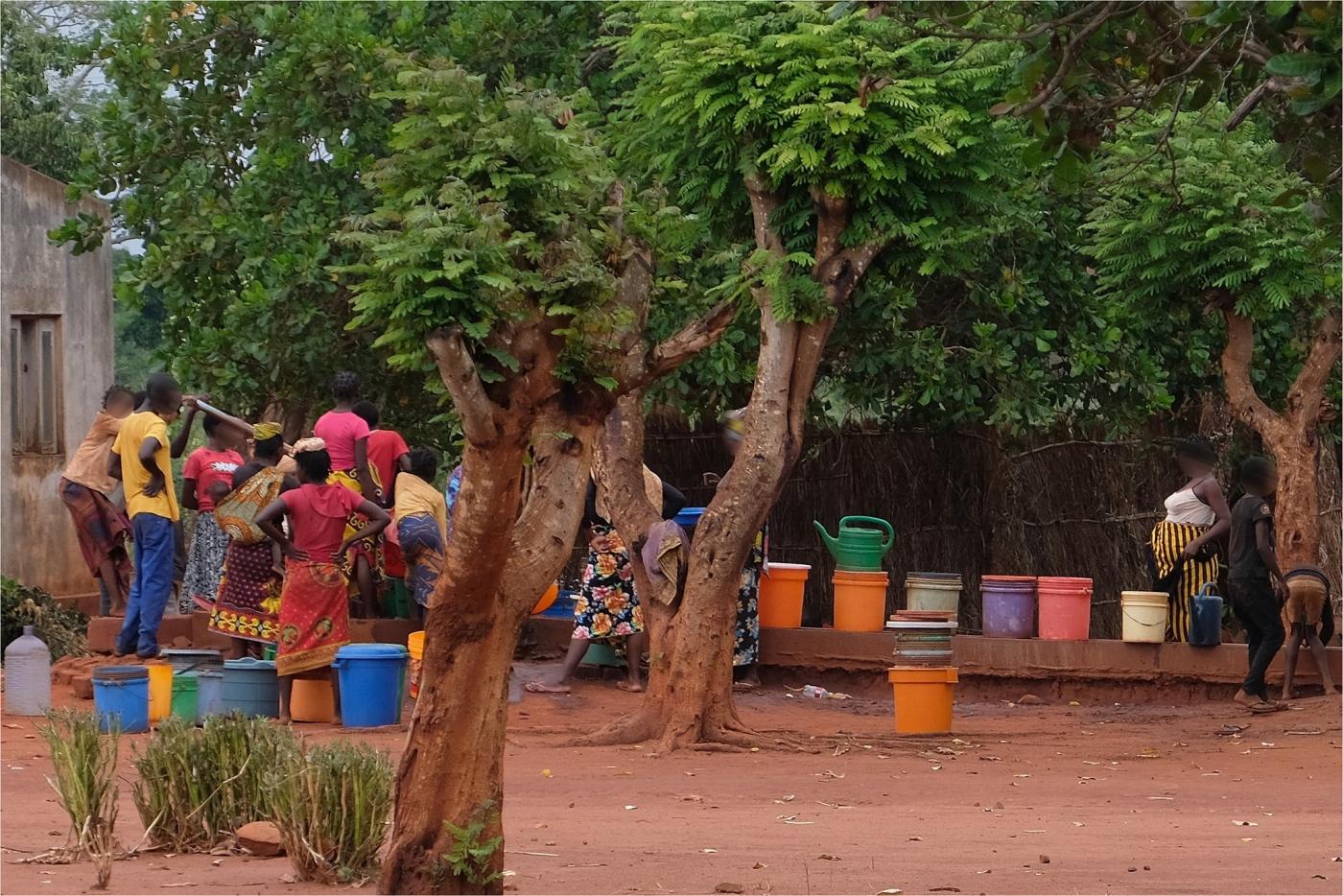Article warns of the challenges in adapting the metropolises to climate change
20/03/2024
Graça Portela (Icict/Fiocruz)
In an opinion article – Heat waves, climate crisis and adaptation challenges in the global south metropolises –, published on March 8 in the international open access publisher PLOS, researcher Christovam Barcellos, from Fiocruz, warns of the challenges faced in adapting the global south metropolises to climate change, especially heat waves, pointing out that, in these areas, issues such as the supply of drinking water, electricity and basic sanitation still pose extra difficulties for the population, especially the poorest.
Sharing community water well during the period of drought in the city of Nampula, Mozambique (photo: Christovam Barcellos)
According to Barcellos, a researcher at the Climate and Health Observatory and the Health Information Laboratory (LIS) of the Institute of Scientific and Technological Communication and Information in Health (Icict/Fiocruz), heat waves that do not affect all inhabitants of a country do not have the same characteristics as what has been happening in Europe – “It is rather trickier in the South", he jokes.
As one of the signatories of Fiocruz's open letter, launched at the beginning of February this year, calling for a "new global health emergency" to be declared due to the climate and environmental crisis and the accelerated worsening of its impacts on the population's health, Barcellos, in this article, sets out his vision of the impacts he has been monitoring as a researcher both in Brazil and in other countries, such as Mozambique.
In reality
In the case of Brazil, the data collected by the IBGE in the 2022 national census, released in December 2023, with more than 90 million households, shows great differences between national regions, which reinforces Barcellos' concern if we compare the conditions in the global north (more industrialized countries with stronger economies) and those in the global south, living in completely different realities.
In the case of people living in the slums (favelas) the situation is even worse, as Renata Gracie, coordinator of LIS and researcher at the Climate and Health Observatory, explains that this is due to various factors, such as reduced access to education, basic sanitation and health, among others. According to her, “the chance of adapting urban peripheral populations, citizens of slum areas, is in general less protective than that of citizens from the other parts of the cities” and she adds: “In general, as these citizens have less access to health care, it is more difficult for them to be diagnosed with chronic illnesses and, when they are diagnosed, it is often difficult for them to access treatment, a fact which ends up exposing more this group of society, which is why when a metropolitan region is experiencing a heat wave, this group has a greater chance of having more serious consequences, facing even death”.
Gracie is part of several groups at Fiocruz working on research with the population of the slums, especially in the areas of climate and health. She suggests that “primary (health) care, family health teams should pay more attention to these diagnoses in these territories and offer more treatment for chronic diseases so that, in a period of heat waves, these citizens are less vulnerable and can minimize the damage. For the LIS coordinator, “managers thus will also see a reduction in health costs, because preventing a heart attack, for example, is less expensive than taking action later on with hospitalization”.
Challenges
In his article, Barcellos points out two main concerns in the cities of the global south: water, energy and health policies must better support marginalized groups, often dispersed, with little investment capacity and facing problems of income, education and access to health services; it is necessary to ensure the quality and safety of sanitation systems for those already included in these systems, recognizing that their complexity and vulnerability make them prone to failure, especially during extreme weather events.
The researcher emphatically argues that problems can only be reduced or solved “with the involvement of the population directly affected by conditions of immediate or potential risk, within a democratic environment that allows for intersectoral and interdisciplinary dialog”.
Access the full article (originally published in English).




